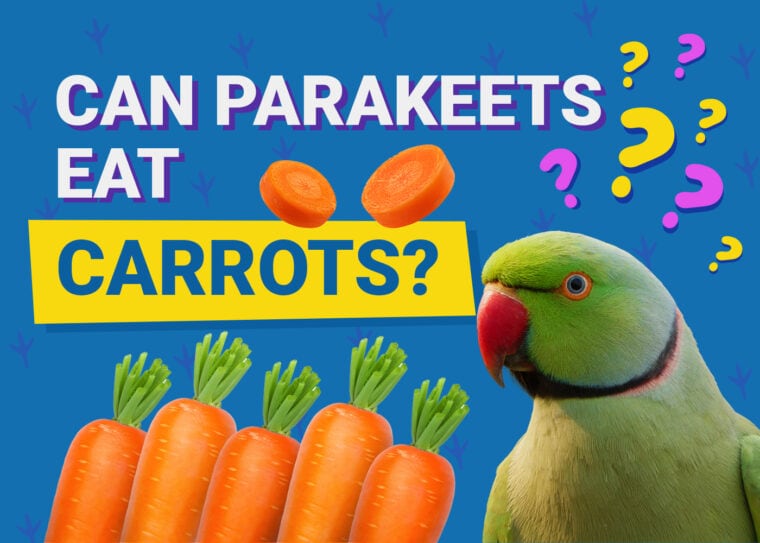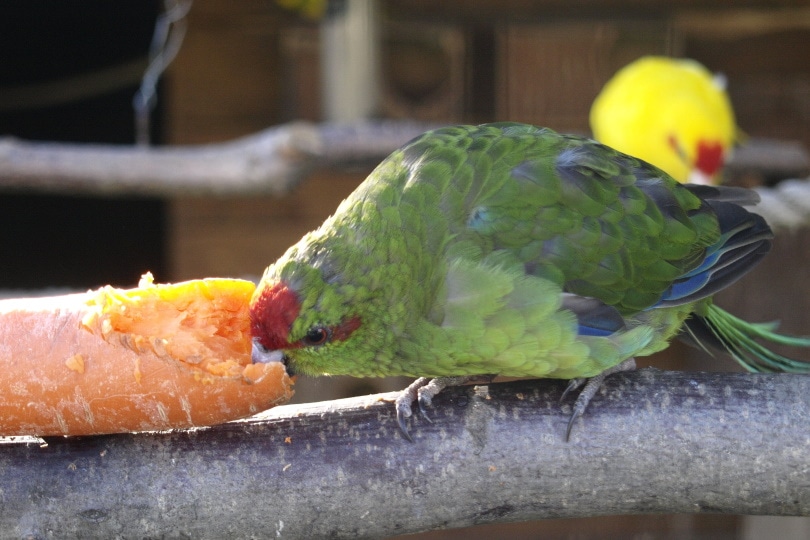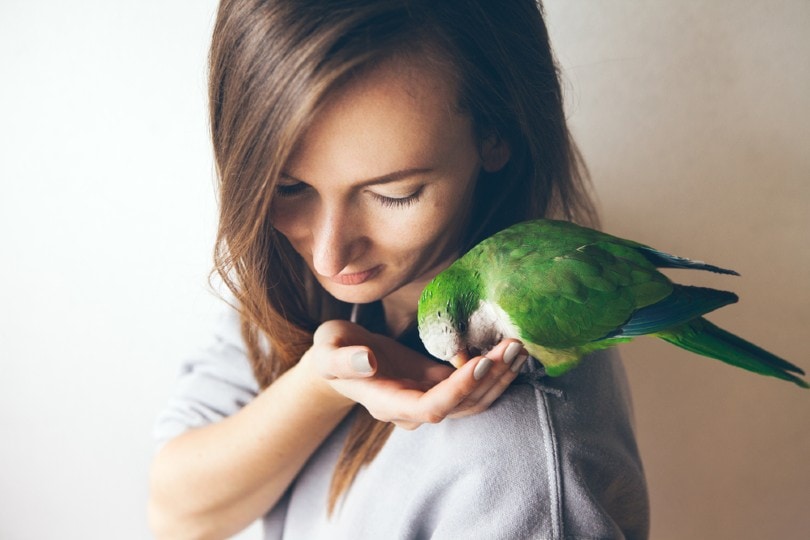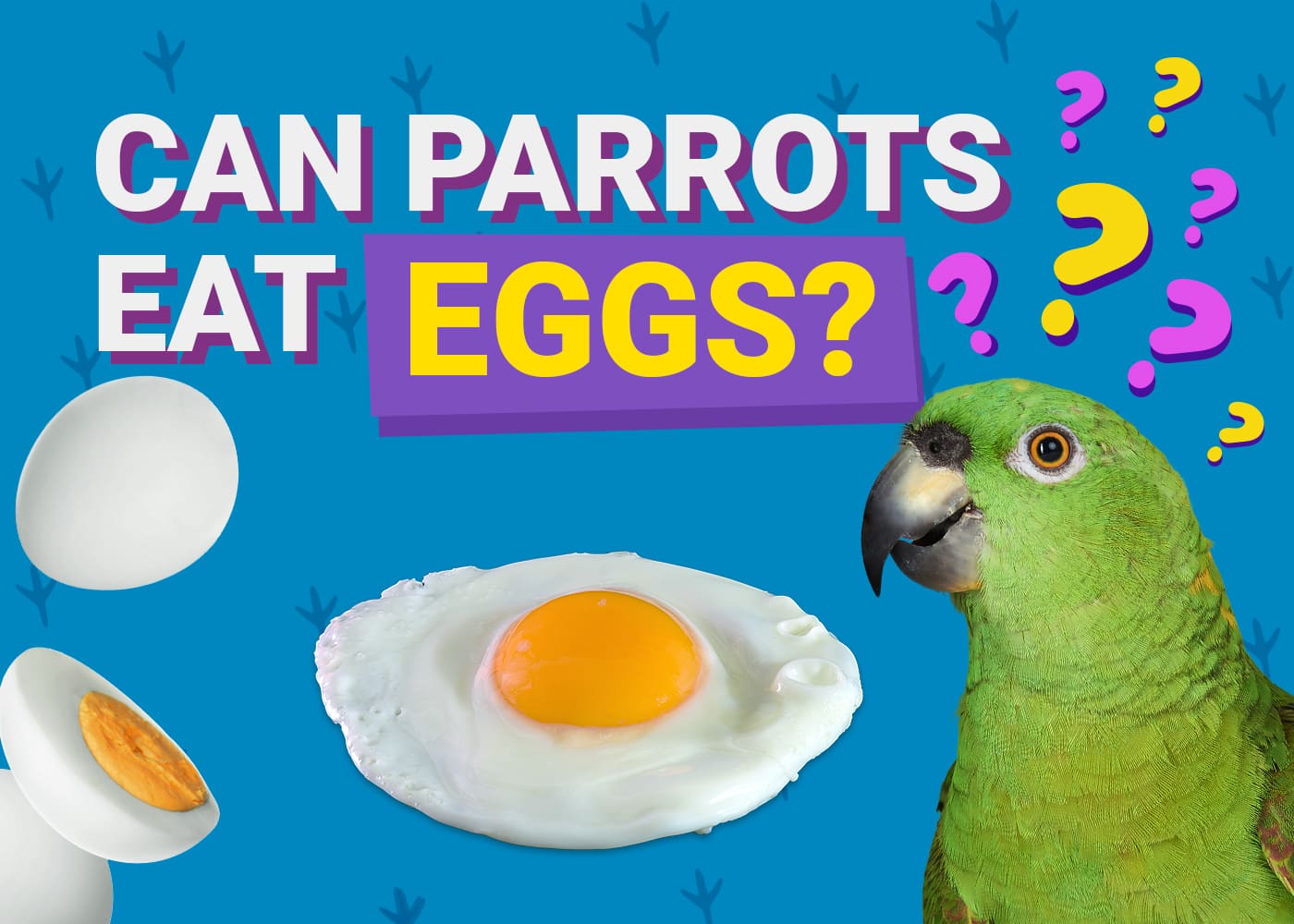
Having parakeets as pets is an exciting adventure many pet owners choose to enjoy. As with any pet, a well-balanced diet is essential for these small parrots. If you’re hoping to offer your birds the best foods possible, you may be wondering if adding carrots to their diet is safe. The answer is yes, carrots have a green light when it comes to feeding your parakeet pet.
Just like humans, parakeets enjoy a mixture of fresh fruits and vegetables to offer the essential vitamins and minerals they need to be healthy. Carrots are one of the veggies your parakeets can eat and will love having added to their diet. Read on below to learn more about this important addition and what carrots offer your parakeet to help keep them healthier, longer.
The term parakeet isn’t a taxonomical reference to any genus or family of parrots; the parrots sometimes referred to as parakeets span multiple genera.
Examples of parrots generally termed as parakeets include budgies, cockatiels, ring-necked parrots, and nose-ringed parrots.
A Bit About Carrots
Carrots may have been one of the veggies you tried to avoid as a child, but these tasty treats are very good for you and your pets. A popular root vegetable, carrots have been around for quite a while. Originally, the carrot grew wild and had a white coloration. The carrot we enjoy today took years of cultivation to become the orange root vegetable we’ve all grown to love. Now, carrots are grown worldwide to ensure people and pets can enjoy these vegetables whenever they choose.
The Health Benefits of Feeding Carrots to Your Parakeet

Before offering your parakeet a new food, you may want to know more about the health benefits and any risks that may be involved. Let’s take a look at what you’ll be providing your feathered friend by adding tasty carrots into their diet.
A Proper Diet for Your Parakeet

A well-balanced diet is the best way to keep your parakeet happy and healthy. These feathered friends are simple eaters. Usually, a parakeet will eat any yummy treat you offer them. This is why it’s so important you know the dietary needs of your bird. Read below to learn more about what you should feed your parakeet.
Veggies, however, can be fed to your bird more often. Carrots, leafy greens, and other tasty vegetables will offer your parakeet the vitamins and minerals their seeds and pellets don’t. These additions also add extra flavor which your bird’s diet may be lacking. Unlike fruits, vegetables are safe to add as a daily snack for most birds.
Choose Only the Best for Your Bird

Parakeets are allowed to eat other things as well, like nuts. The most important thing to remember when offering these new foods or treats is to only choose foods free of unwanted chemicals and dyes. Organic foods are a great choice when you go shopping for your bird. Keep this in mind and always avoid processed foods for your bird’s health.
Can Certain Foods Be Dangerous for Your Bird?
Unfortunately, some foods can be dangerous for your budgie. Like with most pets, you’ll find certain things can lead to dangerous illnesses and in some cases, death. Here’s a look at the foods you should completely avoid to keep your parakeet living its best life.
Conclusion
As you can see, carrots are a great food option for your parakeet. If you’ve been looking for something tasty, colorful, and healthy to give your feathered friend to shake things up, carrots just may be the answer. Like with any food, always provide your parakeet only the best selection of carrots available and watch as they enjoy their new delicious treats.
- Related read: Can Budgies Eat Carrots? What You Need to Know!
Featured Image Credit: Veera, Shutterstock









